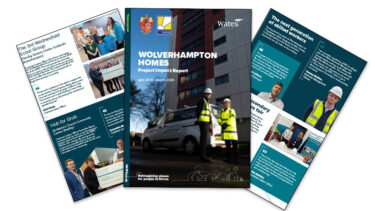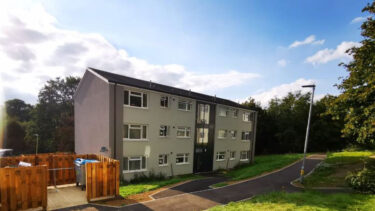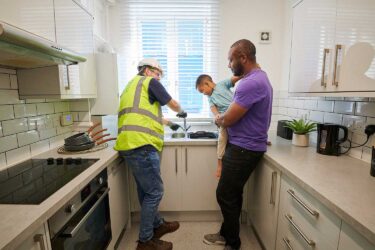The SHF applications are in, and the allocations are awaited.
Now is a critical time to consider how best to prepare for social housing funding to hit the ground running on decarbonisation projects and recreating sustainable places for 2025.
Based on our experience working on more than 40 retrofit schemes, we are sharing valuable insights on the important things to focus on now to prepare for wave three allocations.
These include good practices that are helpful to consider, even if you’re not allocated funding at this time.
Here are our top ten recommendations:
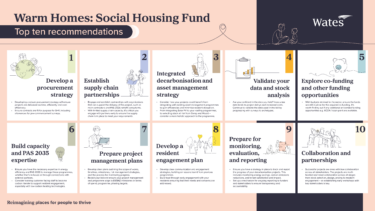
1. Develop a procurement strategy
- A robust procurement strategy will ensure projects are delivered on time, efficiently and cost-effectively.
- Ensure contracts are fit for purpose for SHF, including allowances for pre-commencement surveys.
2. Establish supply chain partnerships
- Engage and establish partnerships with organisations that can support the delivery of the project, such as main contractors and PAS 2035 retrofit consultants.
- With limited supply chain capacity, you must engage with partners early to ensure the supply chain is in place to meet your requirements and collaborate effectively.
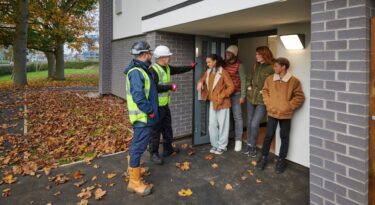
3. Integrated decarbonisation and asset management strategy
- Consider how your projects could benefit from integrating with existing asset management programmes to gain efficiencies and minimise resident disruption. Residents must be able to thrive in their environment even during ongoing work, so establish solutions that will enable this.
- From integrating Solar PV into your roofing programmes to selecting stock at risk from Damp and Mould, consider a more holistic approach to the programme.
4. Validate your data and stock analysis
- Are you confident in the data you hold? Inaccurate data leads to project delays and increased costs. Continue to validate the data used in the bid by progressing with surveys to archetypes.
5. Explore co-funding and other funding opportunities
- With budgets strained in the sector, ensure the funds are still in place for the required co-funding.
- It’s worth finding out if any additional or blended funding opportunities e.g. ECO4 / local grant are available.
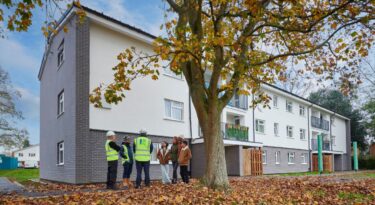
6. Build capacity and PAS 2035 expertise
- Ensure you have the necessary expertise in energy efficiency and PAS 2035 to manage these programmes, whether that’s in-house or through connections with external partners.
- Consider training customer-facing staff to become informed and carbon literate to support resident engagement, especially with low-carbon heating technologies. Knowledge is power!
7. Prepare project management plans
- Develop clear plans outlining the scope of work, timelines, milestones, risk management strategies, and the process for monitoring progress.
- Revisit your bid and ensure your project management and programme align with DESNZ milestones in terms of spending, programme, and phasing targets.

8. Develop a resident engagement plan
- Build trust through early engagement with your residents ensuring that their needs and concerns are addressed. By engaging with your residents from the start, you can make them feel connected during the process and maintain a sense of community, and this builds trust.
- Develop clear communication and engagement strategies, building on lessons learnt from previous programmes.
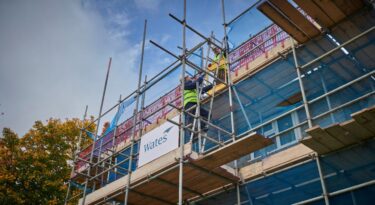
9. Prepare for monitoring, evaluation, and reporting
- Ensure you have a strategy in place to track and report the progress of your decarbonisation projects. This includes monitoring energy savings, carbon emissions reductions, and tenant satisfaction and impact.
- Set up a mechanism for ongoing reporting to funders and stakeholders to ensure transparency and accountability.
10. Collaboration and partnerships
- Successful projects are ones with true collaboration across all stakeholders.
- The projects are multi-faceted and require partnership across all stages from stock selection, design, and pricing to resident engagement – so establishing early workshops with key stakeholders is key to forming special connections.
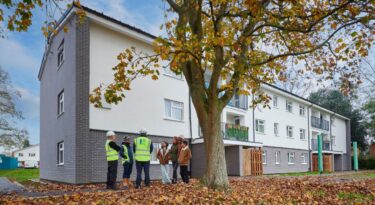
Social Housing Decarbonisation
Helping landlords cut fuel poverty and improve the energy efficiency of homes.
We guide our customers through every step of their retrofit journey, from initial planning, through to final install and monitoring.
Our ethos is to work collaboratively, supporting customers with applications for funding, helping them to understand and adhere to compliance, selecting the most suitable energy efficiency measures and supporting residents through essential works.






